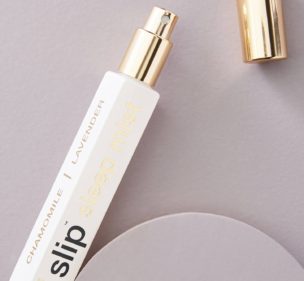5 Simple Ways to Add Years to Your Life
|
|
Most of us live from day to day, not necessarily thinking about how long we’ll live, but focusing more so on living one day at a time. However, on occasion, we might find ourselves thinking about the quality of our life and how we can potentially extend our longevity. Here are some simple ways that are reported by the experts – to not only enhance our lives, but also to add “healthy” years to it. After all, wouldn’t it be nice to live a longer life especially if you were more assured that you could increase the likelihood of more days filled with happiness, good health and ultimate wellness? It’s definitely something worth taking into serious consideration if one of your objectives is to live life to the fullest.
 Improve Your State of Mind
Improve Your State of Mind
Start being an optimist versus a pessimist. Experts have verified that people who maintain a positive perspective about the aging process are more apt to live longer. Studies have shown that people with a healthy and positive outlook on living tend to live on an average 6 years longer than people with a negative outlook. A study in Norway has shown that laughter can extend the lives of people. In the study, 54,000 Norwegians were followed for 7 years. These people were asked about their sense of humor and how often they laugh. Those that found the world the most funny were 35 percent less likely to die during the study period. If a person in the study was diagnosed with cancer, he or she was 70 times more likely to survive until the end of the study if laughter and humor is an important part of his or her life. It is essential to try to find the positives in living versus focusing the downside of aging.
It is proven that individuals that exercise have better physical stamina and health. Additionally, people who eat healthy and exercise increase their life expectancy by at least 7 years. Even a short walk around the block every other day can add two years to ones life. Dr. Roizen from Stanford University School of Medicine reported studies show that wearing a pedometer can also help you stay on track. People who wear one take an extra 2,000 steps (about 1 mile) a day. There is documented proof that exercise improves a person’s s overall state of well being hence potentially providing a greater sense of gratification and fulfillment.
Flossing prevents gum disease as a result is also an effective measure in preventing heart disease. Preventing both of these together is what adds years to your life. Flossing helps prevent your gums from becoming inflamed. When your gums are inflamed it indicates have a chronic bacterial infection in your mouth. This can potentially clog your arteries through two mechanisms: the bacteria find their way in to your arteries and your body mounts an immune response to the bacteria in your mouth, causing inflammation which in turn can cause your arteries to narrow. This makes it hard for your heart to do its job and can lead to heart disease. Flossing daily can make the difference in life expectancy.
“Sleep is profoundly important,” according to David Katz, MD, director of the Prevention Research Center at the Yale University School of Medicine. “It’s when every organ and system in your body repairs, restores and resets itself. Not getting enough sleep compromises how well your entire body functions.” Individuals need varied amounts of sleep. However, experts say that regularly getting less than 7 hours per night is what starts to have a negative impact.
Maintaining Healthy Relationships
Reports have shown that people in a healthy monogamous relationship are significantly healthier compared with those who are either unhappy or sexually inactive. According to David Katz, M.D., Director, Yale Prevention Research Center “While love may seem a “warm and fuzzy” topic, it is in fact the cold, hard scrutiny of clinical trials demonstrating that those with loving relationships are far less vulnerable to chronic disease and death than those without.”






















